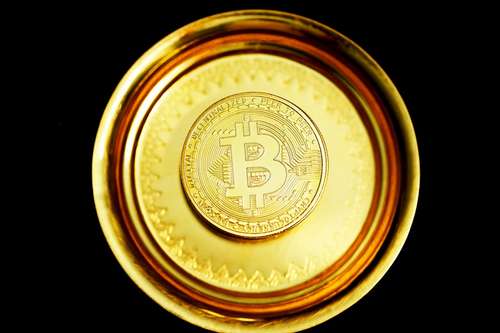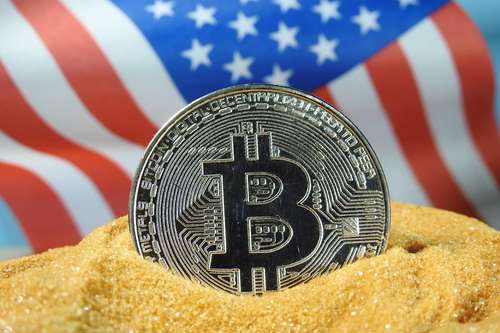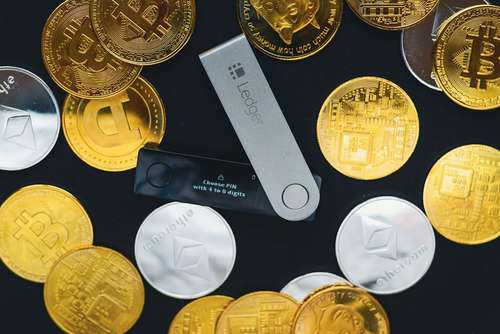Key Highlights
- A recent report suggests Bitcoin’s potential as a reserve asset in times of inflation and global instability.
- The report argues Bitcoin can diversify portfolios and act as a hedge against economic and geopolitical risks.
- High-profile figures, including former President Trump, are increasingly endorsing Bitcoin as a strategic asset.
In a time of economic volatility, a new report from the Bitcoin Policy Institute advocates for Bitcoin as a potentially powerful reserve asset. Titled The Case for Bitcoin as a Reserve Asset, the report by economist Matthew Ferranti discusses Bitcoin's resilience against inflation and ability to serve as a hedge during geopolitical and financial uncertainties.
Drawing attention for its decentralized nature and limited correlation with traditional financial assets, Bitcoin is emerging as a noteworthy candidate for countries seeking alternative financial security measures, particularly those looking to reduce reliance on the U.S. dollar.
Why Bitcoin Holds Reserve Asset Potential
Ferranti's report outlines Bitcoin’s appeal as a reserve asset, citing its limited correlation with conventional financial assets and, notably, its decentralized structure.
Unlike traditional assets subject to external pressures, Bitcoin operates without counterparty risk, allowing it to function independently of global financial dynamics.
Ferranti asserts, “Bitcoin’s decentralized nature can serve as a safe haven for countries and institutions facing financial sanctions or currency instability.”
Several analysts have echoed Ferranti's perspective, emphasizing how Bitcoin’s decentralized qualities make it a particularly attractive option for countries vulnerable to sanctions.
Rising Endorsement from Global Figures
Prominent political figures have voiced support for Bitcoin as a strategic reserve asset, particularly in the U.S., where the idea has gained traction across political lines.
Former President Donald Trump recently made headlines when he posted on Truth Social advocating for policies that support Bitcoin production domestically, cautioning that restrictive policies could benefit rival countries like Russia and China. His remarks have since amplified the discourse surrounding Bitcoin’s potential as a national asset.
Echoing similar sentiments, Senator Cynthia Lummis, a vocal advocate of cryptocurrency, commented, "Bitcoin is an incredible store of value, and I certainly see the benefits of our country diversifying its investments."
In line with these views, other policy figures, such as former presidential candidate Vivek Ramaswamy, are proposing that the U.S. dollar could be bolstered by assets like Bitcoin to provide inflation resistance.
Bitcoin’s Inflation Hedge and Potential as "Digital Gold"
Ferranti’s report aligns Bitcoin with a growing demand for “digital gold,” noting how its fixed supply and deflationary nature make it an appealing inflation hedge.
Much like gold, Bitcoin’s supply cap of 21 million coins positions it as a guard against currency devaluation, protecting purchasing power from inflationary pressures. This property, combined with Bitcoin’s resilience to central bank monetary policies, makes it highly valuable in preserving asset value.
Recent inflation spikes and economic turbulence have made Bitcoin attractive to individual investors and institutions alike, who see it as a shield against rising prices and fiat currency fluctuations.
With national debt levels reaching record highs globally, Ferranti’s report suggests that Bitcoin could offer central banks a means to secure financial stability without relying on traditional currencies.
Final Notes
The growing interest in Bitcoin as a reserve asset signals a shift in the way governments and institutions consider cryptocurrency’s role in financial portfolios.
From individual investors to policymakers, Bitcoin is being re-evaluated as a hedge against inflation and a tool for managing financial risks in uncertain times.
While adoption at the national reserve level remains a topic of debate, this new report underscores the momentum behind Bitcoin as a viable alternative in a world marked by economic and geopolitical unpredictability.




